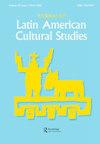The Avant-Garde Is Dead, Long Live the Avant-Garde: Glauber Rocha’s Rereading of Brazilian Modernismo and Di Cavalcanti
IF 0.3
4区 社会学
Q4 CULTURAL STUDIES
引用次数: 0
Abstract
This article examines Glauber Rocha’s Di-Glauber as a filmic rereading and interrogation of Brazilian Modernismo and Emiliano Di Cavalcanti’s position in the Brazilian artistic tradition. Di-Glauber transforms Di Cavalcanti’s funeral into an anthropology of images, exploring established and possible relations between art, death, and society. Its unorthodox cinematic approach deconstructs Modernismo and Di Cavalcanti’s canonisation within Brazil’s “official” and transcendental national identity. First, Di-Glauber presents an affective account of Rocha and Di Cavalcanti’s friendship, diverting the painter’s institutionalisation through an immanent prism. Then, the film deconstructs its own representational status, self-reflexively exposing itself as an audiovisual artefact and hindering its eventual utilisation as part of an essentialist Brazilian identity. Di-Glauber paradoxically draws upon avant-gardist means to question the avant-garde’s canonisation: Rocha’s anthropophagy devours Di Cavalcanti and Modernismo to reclaim the political potential of the Brazilian artistic avant-garde.前卫已经死了,前卫万岁:格劳伯·罗查重读巴西现代主义与迪卡瓦尔康蒂
本文将格劳伯-罗查的《格劳伯》视为对巴西现代主义的电影重读和拷问,以及埃米利亚诺·迪卡瓦尔康蒂在巴西艺术传统中的地位。迪格劳伯将迪卡瓦尔康蒂的葬礼转变为一种图像人类学,探索艺术、死亡和社会之间已建立的和可能的关系。其非正统的电影方法解构了现代主义和迪卡瓦尔康蒂在巴西“官方”和超越的国家身份中的推崇。首先,Di Glauber对Rocha和Di Cavalcanti的友谊进行了情感描述,通过一个内在的棱镜转移了画家的制度化。然后,这部电影解构了它自己的代表性地位,自我反射地将自己暴露为一个视听制品,并阻碍了它作为巴西本质主义身份的一部分的最终利用。Di Glauber矛盾地利用先锋派的手段来质疑先锋派的经典化:罗查的食人狂吞噬了Di Cavalcanti和现代主义,以重新获得巴西艺术先锋派的政治潜力。
本文章由计算机程序翻译,如有差异,请以英文原文为准。
求助全文
约1分钟内获得全文
求助全文

 求助内容:
求助内容: 应助结果提醒方式:
应助结果提醒方式:


